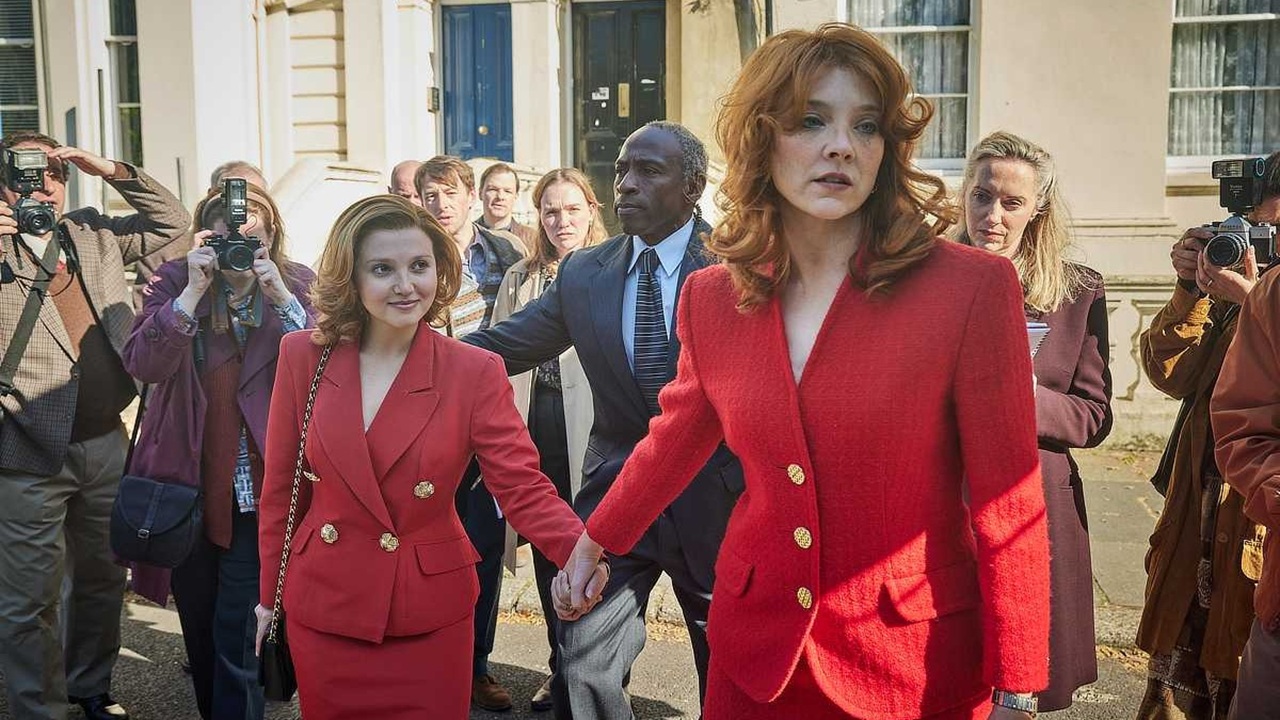Today teenagers in first world nations are practically entitled to a safe obliviousness of the world around them. All a teenager's thoughts can be relentlessly turned inward to force him or her to tirelessly attack and question themselves, while the greater world could well be going to hell in a hand basket. But the luxury of this self-indulgent/self-destructive lifestyle is one stolen from the children of How I Live Now, a coming-of-age drama set against the backdrop of a murky and merciless war.
Adapted from Meg Rosoff's celebrated first novel, How I Live Now stars Saoirse Ronan as a fifteen-year-old New Yorker whose widowed father sends her to visit with her aunt and cousins in rural England. Upon her arrival, Daisy is determined to sneer at her country cousins' plans for fun, like swimming in a nearby lake. But her resolve to brood softens as she forms an almost instant crush on the hunky Edmond (George Mackay). (To avoid discomfort as this romance blossoms, Daisy makes it a point to note Edmond is technically Daisy's step cousin, though how that follows is never explained.) When she arrived, Daisy's brain rages with a cacophony of self-criticism--in the form of voiceover--but her mind mellows and she actually smiles as Edmond shows her love and tenderness.
But this idyllic retreat is short-lived. One lovely summer afternoon turns terrifying when a thunderous boom sounds and winds swirl around their fields and forests in a frenzied dash. Even at a distance, the children know it means the brewing war has gotten serious and they are now on their own. Surviving whatever may follow is a task made all the more challenging when a military state separates the girls, Daisy and her spirited young (step)cousin Piper (Harley Bird), from the boys, Edmond and his sweet bespectacled brother Isaac (Tom Holland).
Young adult novels often focus on a character's coming of age through a story in which they stop thinking of themselves and instead consider sacrificing their own happiness or safety for the betterment of others. Rosoff's story uses this war as the setup for which Daisy must grow from self-centered teen to a selfless young woman. At the crux of her transformation is an arduous and dangerous journey she leads Piper on to escape their government mandated refugee camp to the safety of the farm house where she dreams of reuniting with Edmond once more. It's a fascinating story, but unfortunately one that is told with a slapdash attitude.
Kevin Macdonald, who forged a noteworthy reputation with dramas like The Last King of Scotland and State of Play, directs How I Live Now with an intentional ambiguousness that works only in fits and starts. The mysterious and terrible war is vaguely skethced-- we never get the details of who's fighting, only images of fighters, wreckage and refugees-- but it makes sense from Daisy's point of view; who cares whose fighting when they all seem out to get you? But Daisy herself also feels hastily established, which makes her transformation less clear. Introduced as an abrasive and neurotic girl, she drops her hard edge almost as soon as Edmond first flirts with her. But little is left to replace these traits except moony eyes of infatuation. From there the pair's romance progresses so quickly that it doesn't feel grounded before they are separated and we're to believe this great love is enough to link them so deeply that Daisy and he can speak through premonition dreams. This is not helped by the depiction of Edmond, which is so one-note in its dreaminess that he seems less a character than an abstraction of the perfect teen boy with his big smile, simple brawn, and endless warmth.
Shockingly, Ronan lends little depth to Daisy. Instead, she seems straining to play a normal girl, one who isn't dead, a vampire, or a teen assassin. While I could intellectually connect to the horrible dilemmas facing Daisy, they didn't hit on an emotional level because Ronan's performance is alternately flat or shrill. It brings me no joy to say that, as I've greatly admired Ronan in the past, especially in Hanna, where a scene of awkward flirtation with a boy feels authentic yet true to its out-therestory. Here she is like a shadow of a real girl, lacking the passion, complexity and life that could have made her a truly captivating heroine.
Nonetheless, I generally enjoyed How I Live Now. Its story offers an intriguing and unique angle on a classic YA theme. It features some striking visual moments, and a hard-earned message of hope and perseverance. But Macdonald seems out of his depth directing a kid-centered drama, and the characters suffer, coming off as archetypes (the dream boy, the nerdy brother, the obnoxious little sister) or never quite coming together at all. It's a difficult thing translating a book that is told in the voice of a character to a film where most of her internal monologue is stripped away. And it's a shame that so much was stripped away that How I Live Now's heroine seems barely there at all.
Your Daily Blend of Entertainment News
Staff writer at CinemaBlend.


